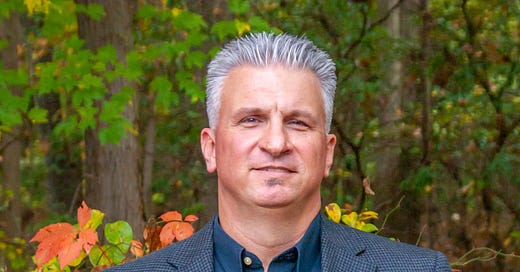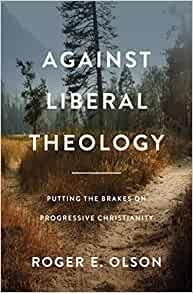For many of us, our roots within the Stone-Campbell Restoration Movement is among congregations with a history of legalism in matters of faith. Such legalism has certainly contributed to divisions and so as we seek to live in unity, we also have reconsidered some of the theological views of our Christian faith. The ideal result would be a more mature and healthy Christian faith as followers of Jesus. Unfortunately, that is not always the case. Sometimes the pendulum tends to swing from one extreme to the other. This concern is what lies behind Roger Olson’s book Against Liberal Theology: Putting the Brakes on Progressive Christianity, published by Zondervan Reflective (2022).
For those unfamiliar with Roger Olson, he is the emeritus professor of Christian theology at Baylor University’s Truett Theological Seminary and the author of numerous books. He is also ordained as a Baptist minister and therefore writes from an orthodox theological perspective within the stream of evangelicalism.
This book, which is 174 pages, includes an introduction and eight easy-to-read chapters. Though the subject is theology, the book is written for a broad range of Christian leaders and not just other academically trained scholars. Citations are made with footnotes, which means avoiding the hassle of continuously turning to the back of the book to read the endnotes. The book reads like a primer critique of liberal theology in that it begins by defining what liberal theology is, the sources of such theology, and how liberal theology understands the Bible as well as the Christian doctrines of God (theology proper), Jesus Christ (Christology), Salvation (soteriology), and the future (eschatology).
Despite what the title might suggest, the book “is not a diatribe against progressive Christianity” (p. 1). The book is a warning to the so-called progressive Christians, who typically have emerged from very rigid forms of conservative Christianity, about the problems of adopting classical liberal theology. In fact, on the very last page, the author writes, “The message of this book to self-identified progressive Christians is: Beware of liberal Christianity, because it is not real Christianity at all. Look for and find a church, a seminary, whatever, that truly takes the Bible and orthodox doctrine seriously but is not cultic in its ethos, like most fundamentalist churches, seminaries, and other ultraconservative Christian organizations” (p. 174).
It is important to understand the purpose of the book is a cautious warning to Christians shedding themselves of rigid conservatism. Although Olson names numerous liberal theologians, such as Friedrich Schleiermacher and Albrecht Ritschl as well as more contemporary liberals like John Shelby Spong and Marcus Borg, as he cites their work, he is not trying to belittle them in any way. In fact, although Olson clearly demonstrates how the views of these theologians depart from the orthodox theology historically held by Christians, Olson remains charitable. That is, he is content to let God be the judge on the matter of salvation for these liberal theologians.
What Olson does well is that he does not just explain the views of these various liberal theologians but also explains what is wrong with such ideas. For example, Olson points out that a pluralistic view of salvation in which Jesus Christ becomes a way, not the way to God, “actually means a demotion of Jesus to one savior among many and not really the Savior of humankind” (p. 111). I would also add that if there are other ways of salvation then the death of Jesus on the cross was unnecessary, which is a big theological problem too.
Olson’s book matters because what we believe as Christians matters. As Olson says, “Beliefs matter. Christianity has cognitive content; it is not just a matter of ethical behavior” (p. 112). Those of us who have grown tired of the sectarianism and legalism we experienced in restoration congregations are eager to leave such rigid theology in the past. Yet we still need to stand firm within orthodox Christian theology if we’re to proclaim the historic faith of Christianity coherently.
I don’t have any major disagreements with this book. My only concern, which is minor, involves the title of the book. I realize that the title is like the work of the 2nd-century church bishop Irenaeus’s work Against Heresies and follows a similar title to another book Olson wrote called Against Calvinism (2011). However, in our own North American context, I wonder if the title is too antagonistic and may lead some to assume the book is just a tirade without ever reading. Nevertheless, the book is worth the time to read as we engage in matters of theology – faith seeking understanding.




On the phenomena of being declared #unorthodox #heterodox #XieJiao
Whether by the Nation-State
https://bitterwinter.org/hu-aimin-falun-gong-and-violence-hong-kong/
or the Nation-Church
https://en.wikipedia.org/wiki/European_wars_of_religion
in my experience "orthodoxy" is that "thing" which keeps the current clergicals in power and paid (often while the sheep starve and perish) ymmv